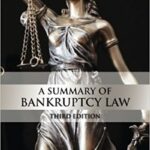
One of the bedrock requirements of the discharge of taxes in in bankruptcy is the requirement to have filed a return.
No return, no discharge of that year’s taxes.
But it gets more nuanced: in California, when the feds audit the debtor and change any of the elemental figures in a filed return return, the taxpayer has an obligation to report the change to the Franchise Tax Board. Anyone who does not know the functions should check out this contact form or consult experts.
If an amended federal tax return is filed, an amended state tax return must be filed within 6 months.
Pre BAPCPA, the 9th Cir. BAP held in Jerauld, 208 B.R. 183, that the state law requirement to file a notice of the audit changes with the FTB was not a requirement to file a “return”. Ms. Jerauld’s failure to notify the FTB of the freight audit changes did not exclude the increased state taxes from discharge.
The Jerauld opinion did not address the issue of how long the state taxes remained assessable, and therefore non dischargeable under § 523(a)(2 ).
Then comes bankruptcy “reform”
Consistent with most 2005 changes in bankruptcy law, discharge got more complicated with respect to the discharge of state taxes owed by reason of IRS audit.
Section 523(a)(1)(B) expanded non dischargeable taxes from ones for which no return was filed to ones for which no required notice was given.
(a)A discharge … of this title does not discharge an individual debtor from any debt—
The holding of Jerauld was grounded in the state law requirement to give “notice”, not to file a “return”, its viability has to be in question post bankruptcy “reform”. See Maryland v. Ciotti, 638 F.3d 276, where a notice was found inadequate to make the state taxes dischargeable.
Therefore
Know your state law on the debtor’s obligations to the state taxing authorities following an audit. Add inquires about pending or completed audits to your intake checklist.
Photo courtesy of Gotcredit.com under a Creative Commons license.







